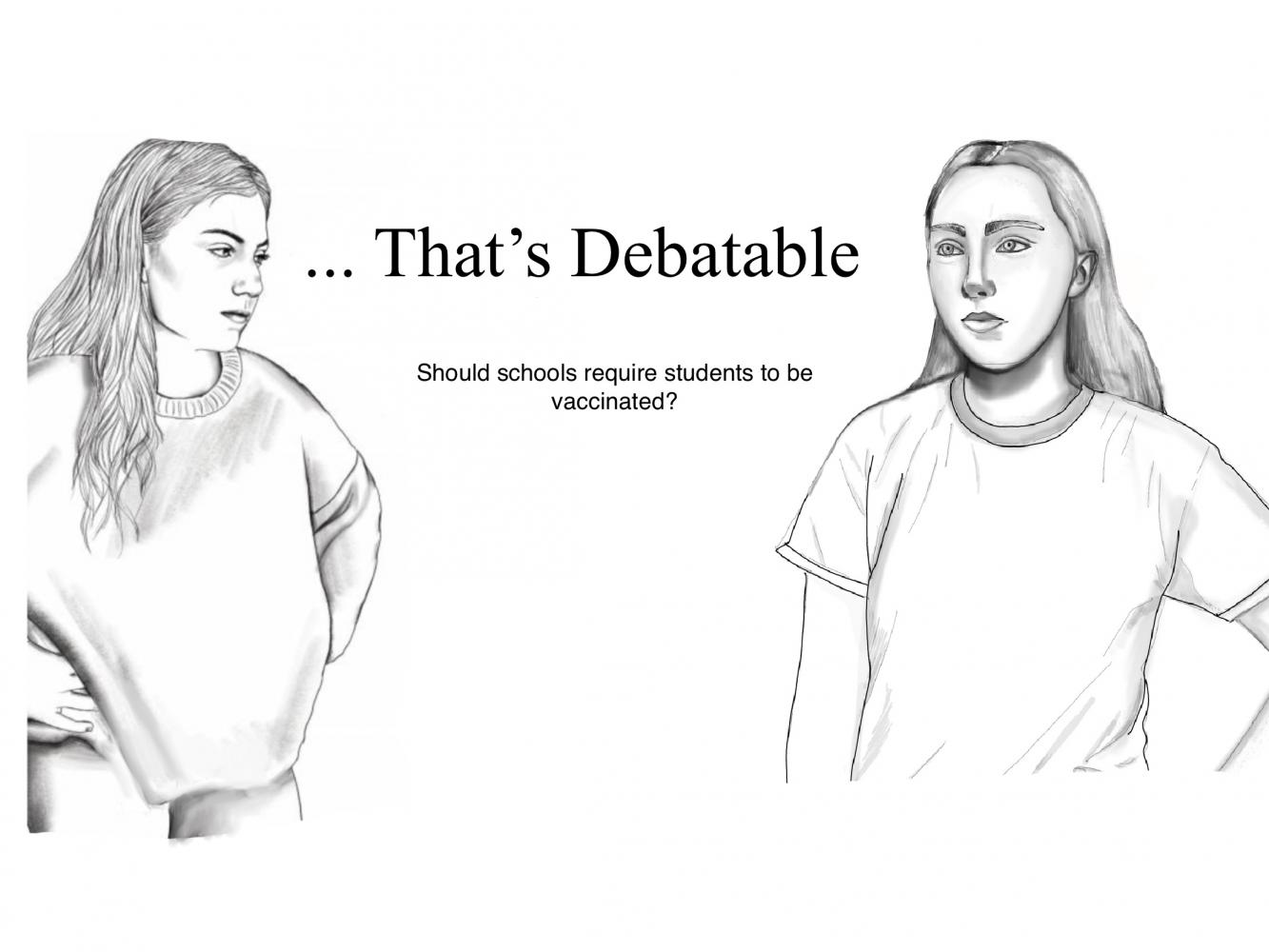In the wake of a global pandemic, public school health and vaccinations are hot topics. With this, however, comes the question: should schools require students to be vaccinated?
YES:
In the midst of a pandemic, the future of in-class schooling for the 2020-2021 school year is looking uncertain. However, the creation and distribution of a vaccine would likely give schools the “ok,” to open for the fall semester. The only factor getting in the way of this are anti-vaccination families. Requiring students to be vaccinated has been an argument for decades. Vaccinations should be mandatory in schools for various reasons.
For starters, vaccines save 2.5 million children from diseases every year, while 2.3 million children die from vaccine-preventable diseases. The American Academy of Pediatrics states that “most childhood vaccines are 90%-99% effective in preventing disease.” If a vaccine is available, there should be no reason to not take it if it can potentially save your life and many others.
Moreover, vaccines ultimately save time and money. If a child is sick, their parents will have to stay home from work, therefore not getting any money that day. The child is also missing valuable learning time, which can result in them falling behind in classes. Vaccinations cost less than the medical care that a child would need to receive because of the disease.
Many people argue that ingredients in vaccinations are unsafe. However, the ingredients are not used in harmful amounts. Another argument against vaccines is the risk of an allergic reaction to the substance. This is very rare and only occurs in one per several hundred thousand to one per million vaccinations.
Several religions oppose vaccines, so under the constitution students have the religious freedom to not partake in some vaccinations. Various vaccinations contain animal products, making them conflict with vegetarian and/or vegan philosophies. For reasons like these, parents have the option to opt-out of one or more vaccinations, but by law, students must have certain vaccinations.
Furthermore, parents expect that when they send their children to school, they will be safe from contagious diseases. Public schools have an ethical obligation to require students to get vaccinated unless they can’t for medical reasons. This does not mean that students are forced into vaccinations, but they cannot attend the school if the vaccine requirement is not met.
All and all, I stand by the idea of “your body, your choice,” but when the decision affects other people, the choice is compromised. It is simple: vaccines save lives. Therefore, non-vaccine parents need to look at how their decision affects the entire community, not just their child. For any reason other than medical, vaccinations should be mandatory in schools to protect other children, teachers, and employees.
Written by Taylor Olgin
NO:
I understand that vaccinations can save lives but having schools mandate vaccinations for all students is an administrative overreach.
Medical decisions for children should be left up to the parent or caregiver to decide. Schools and their administrations should not force any particular medical decision upon students and their families.
The fact is, vaccines can sometimes cause serious and sometimes fatal side effects. Kids have suffered from seizures, comas, brain damage, and many other health issues as a side effect of being vaccinated. Doctors cannot guarantee that a child’s body will react well to vaccination. Given that vaccines can cause such serious side effects or potentially even death, it is unethical for schools to force a parent or guardian to make a choice that could do more harm than good.
In addition to the potential for severe side effects, vaccines also contain a lot of chemicals. Many vaccines contain aluminum which in higher amounts can cause serious neurological harm to the human body. Other harmful substances that are sometimes used in vaccines include formaldehyde, glutaraldehyde, and cetyltrimethylammonium bromide. Even if a child does not experience an immediate reaction to a vaccine one does not know about the possible long term effects.
Several religions also oppose vaccines and when schools require them they are directly in violation of the first amendment of the U.S. Constitution, which guarantees freedom of religion.
All children in the United States have the right to a free public education. The Consitution states that all children should have an equal educational opportunity regardless of race, ethnicity, religion, or sex. To deny parents who have a religious, philosophical, or medical concern about vaccinations the right to have their children attend public school is a direct violation of the Fourteenth Amendment. The Fourteenth Amendment provides protection of the privileges of citizens of the United States of America.
Many school districts are requiring students to be vaccinated for diseases that have been eradicated. For example, polio has been declared eradicated in the US since 1979 yet most schools still mandate polio vaccinations.
Due to the fact vaccines can have serious side effects, contain harmful ingredients, and that many people do not support vaccine use for religious, personal, or medical reasons, public schools should not mandate vaccines for all students. Whether a child should be vaccinated should be the parents’ choice, and not up to the school administration.
Written by Grace Williams






